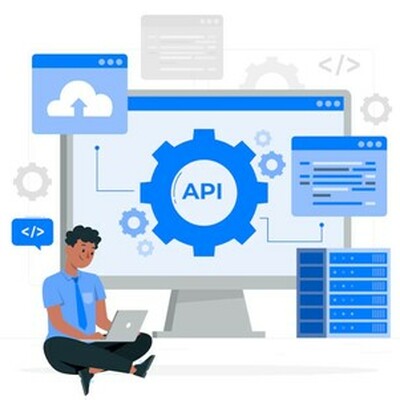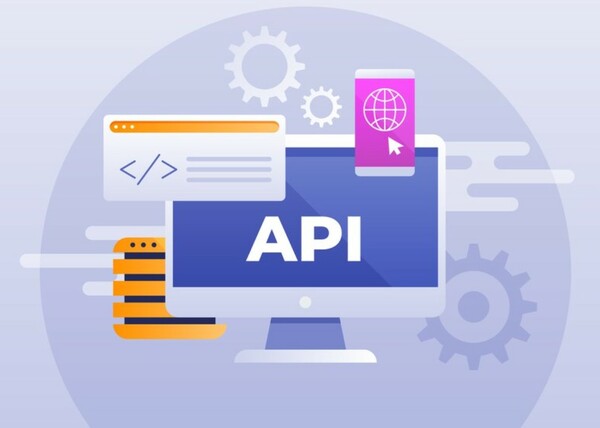Notifications
ALL BUSINESS
COMIDA
DIRECTORIES
ENTERTAINMENT
FINER THINGS
HEALTH
MARKETPLACE
MEMBER's ONLY
MONEY MATTER$
MOTIVATIONAL
NEWS & WEATHER
TECHNOLOGIA
TV NETWORKS
VIDEOS
VOTE USA 2026/2028
INVESTOR RELATIONS
COMING 2026 / 2027
ALL BUSINESS
COMIDA
DIRECTORIES
ENTERTAINMENT
FINER THINGS
HEALTH
MARKETPLACE
MEMBER's ONLY
MONEY MATTER$
MOTIVATIONAL
NEWS & WEATHER
TECHNOLOGIA
TV NETWORKS
VIDEOS
VOTE USA 2026/2028
INVESTOR RELATIONS
COMING 2026 / 2027
 Martin Baldwin -
Jan 14 -
Technology -
api
geolocation api
IP Geolocation API
-
465 views -
0 Comments -
0 Likes -
0 Reviews
Martin Baldwin -
Jan 14 -
Technology -
api
geolocation api
IP Geolocation API
-
465 views -
0 Comments -
0 Likes -
0 Reviews

IP geolocation is one of the most powerful tools for tracking, targeting, and customizing online content based on the user's geographic location. By using an IP to geo API, businesses can enhance user experience, create region-specific content, and improve security measures. This guide covers everything you need to know about IP geolocation APIs, their benefits, and how they work in modern applications.
An IP Geolocation API is a tool that provides information about the physical location of a device or user based on their IP address. When a user connects to the internet, their device is assigned a unique IP address, which is tied to a specific geographical location. The API processes this data and returns information such as the country, city, latitude, longitude, zip code, and sometimes even the internet service provider (ISP) used by the user.
These APIs are primarily used by developers and businesses to gather location data to make more informed decisions about content delivery, security, and marketing strategies.
When a user connects to a network, their device is assigned an IP address. The IP to geo API queries a database of known IP addresses and their associated geographical locations. This data is often sourced from public and proprietary datasets, which map IP addresses to physical locations based on various factors like network routing, domain ownership, and historical data.
The API cross-references the incoming IP address with its database and returns the geographic details associated with that IP. This process happens in real time, ensuring businesses receive accurate and timely data about their users' locations.
Improved User Experience By understanding the location of a user, websites can deliver more personalized content. For instance, an e-commerce site can display local promotions, language preferences, or even currency options tailored to the user's region. This increases engagement and boosts conversion rates.
Enhanced Security and Fraud Prevention IP geolocation is an essential tool for identifying potential fraudulent activity. By tracking where a login attempt or transaction originates, businesses can spot unusual activity, such as someone trying to log in from a different country than the user’s typical location. This adds a layer of security, preventing unauthorized access.
Content Customization and Localization Whether it's for delivering the right language or content specific to a particular region, IP geolocation APIs make localization easier. By understanding a user's geographic location, companies can provide localized advertising, news, and services that resonate better with their audience.
Targeted Marketing Location data is invaluable for businesses looking to implement targeted marketing campaigns. With IP geolocation, marketers can segment their audience based on location, tailoring ads and promotions to different geographic regions. This ensures higher engagement and better ROI on marketing campaigns.
Real-Time Analytics An IP to geo API provides real-time insights into where your users are coming from, which can be particularly helpful for real-time decision-making. Whether tracking website traffic, analyzing market trends, or understanding regional demand, geolocation data helps businesses make more strategic decisions.
E-commerce and Retail For e-commerce platforms, geolocation data helps businesses offer region-specific products, shipping options, and pricing. This ensures that customers only see items available in their area, which simplifies the shopping experience and reduces cart abandonment rates.
Digital Advertising Advertisers can leverage location data to serve targeted ads based on the user’s geographic region. This can be particularly useful for localized offers, promotions, or events that are relevant only to a specific region.
Mobile Applications IP geolocation is also widely used in mobile applications for providing location-based services. Apps like ride-hailing services, navigation, and delivery services rely on real-time geolocation to provide efficient, user-friendly experiences.
Content Delivery Networks (CDNs) By using IP geolocation, CDNs can direct users to the nearest server, minimizing latency and improving load times. This helps deliver content faster and more efficiently to users, enhancing the overall browsing experience.
Travel and Hospitality Travel companies can use IP geolocation to offer destination-based deals and relevant travel suggestions. By understanding where a user is accessing their site from, they can show promotions tailored to the user’s likely interests and location.
Integrating an IP geolocation API into your application is relatively straightforward. Here's a basic overview of the steps:
Choose a Reliable IP Geolocation API Provider The first step is to select a geolocation API provider that fits your needs. Popular providers like IPstack, MaxMind, and Ipinfo offer reliable and accurate geolocation data. Make sure the API you choose offers the required level of accuracy, supports the regions you want to target, and fits your budget.
Obtain an API Key After selecting your API provider, you'll need to sign up for an account and obtain an API key. This key is used to authenticate your requests and track your usage.
Make API Requests Once you have your API key, you can begin making requests to the API. Typically, the request URL will include the IP address of the user you're querying. The API will return a JSON object with geographic data related to that IP address.
Handle API Responses After the API processes the IP address, it will return the data in a structured format, such as JSON. You can then extract and use this data to enhance your application, whether by displaying location-based content or analyzing user patterns.
Monitor API Usage Geolocation APIs are often priced based on usage, so it's important to monitor your requests to avoid exceeding your quota. Many providers offer dashboards where you can track your usage and optimize your calls.
Respect User Privacy When collecting geolocation data, ensure that your privacy policy is transparent about how this information will be used. Respect regional privacy laws, such as GDPR in the European Union, and allow users to opt out if they don't want their location tracked.
Optimize for Speed To ensure a smooth user experience, optimize your API calls. Use caching when appropriate to reduce the number of requests to the server, and make sure that the API response time is minimal to avoid lag in your application.
Validate Geolocation Data While IP geolocation is usually accurate, it can sometimes be incorrect, especially with VPNs or proxy servers. Consider validating location data with additional methods like GPS or Wi-Fi triangulation when higher accuracy is needed.
Consider Regional Regulations Some countries have strict regulations regarding geolocation data, particularly in areas like advertising and personal information usage. Be sure to stay informed of these regulations to avoid any legal issues.
IP geolocation APIs are powerful tools that can provide valuable insights into the geographic location of your users. Whether you're improving user experience, enhancing security, or targeting regional marketing campaigns, understanding and integrating these APIs can drive significant business benefits. By leveraging an IP to geo API, you can unlock the power of location data and create more personalized, efficient, and secure online experiences. As you explore the world of IP geolocation, make sure to choose a reliable API provider and follow best practices for implementation. The ability to track and understand user location can be an essential part of your digital strategy, and the geolocation from IP address API is a key component of that journey.
